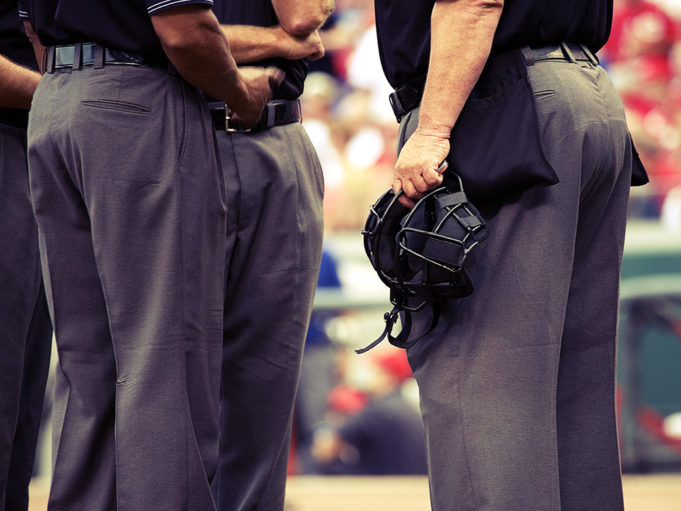If you took a poll of coaches and players and asked them to name the skills and habits that are important for a game official to possess, what do you suppose would be on the list? More importantly, where would “rules knowledge” fall on the list? Rules knowledge is undoubtedly important but how often will it enter into their thinking? Probably only if a controversial
ruling came up during the game you worked, and how often does that happen? The bottom line is that you’re often judged by the little things you do that get noticed rather than your two most crucial skills: rules knowledge and mechanics.
While there is no substitute for strong rules knowledge and solid mechanics, the best officials also possess qualities that are independent of those skills. They have a demeanor or confidence about them that sets them apart from most officials. How can you rise above the rest and, with minimal effort, make yourself look better to everyone who views your performance?
As in other areas of life, there are “little things” that you can do right now — starting with your next assignment — that will enhance your performance, improve your image, increase your comfort and confidence levels and simply make you a better official. The following skills and habits won’t be ingrained overnight but improving a little bit at a time with each of them doesn’t require any significant study or exceptional effort.
1. Keep moving
Hustle really doesn’t take all that much extra effort. It’s simply a matter of being dedicated to being in position and looking interested and athletic during your games. If you know where to be, it is usually easy to get there. Just remember the basic hustle rules: Get as close to the ideal position as possible while ensuring that you are not running when the play actually happens, you don’t interfere with the play and you don’t leave a potential secondary play uncovered.
2. Look professional
No one should underestimate the value of appearance. Buy the standard clothes and equipment for your level of play and wear them properly. Iron your shirts and pants, and shine your shoes. Be dressed and ready before you appear on the field or court and dress professionally when arriving at your changing room before the game. Looks are seldom deceiving; make sure your first impression is one that you can try to live up to and not one that you have to overcome.
3. Arrive early
As with appearance, arrival time is a first-impression issue. It should surprise no one that the official who comes running up to the field a few minutes before game time creates a terrible impression on everyone at the location.
Plan your game days carefully to ensure that you’re able to observe the 15-minute rule for arrival time. The absolute latest you should arrive is 15 minutes early. Most games at the high school level and above will require you to arrive between 45 minutes to an hour and a half early. If you arrive 15 minutes earlier than that, you will always be on time. You will need to properly warm up for your duties, inspect the playing surface, equipment and teams before the game and conduct a managers’ or captains’ conference in addition to your own pregame conference with your crew.
4. Meet the teams
Don’t underestimate the potential value of a meeting with coaches and captains, which gives you an opportunity to get the game started on the right note.
Know what you’re going to say before you talk to the coaches. That diminishes the possibility of you stumbling over your words, creating a negative opinion of your ability or comfort level. Speak in a confident, yet friendly tone, introduce yourself and give a firm handshake. Cover everything you need to cover completely, offer to answer any questions
(that indicates a willingness for two-way communication) and always adjourn your conference with an earnest “good luck” to both parties.
What's Your Call? Leave a Comment:
Note: This article is archival in nature. Rules, interpretations, mechanics, philosophies and other information may or may not be correct for the current year.
This article is the copyright of ©Referee Enterprises, Inc., and may not be republished in whole or in part online, in print or in any capacity without expressed written permission from Referee. The article is made available for educational use by individuals.


















